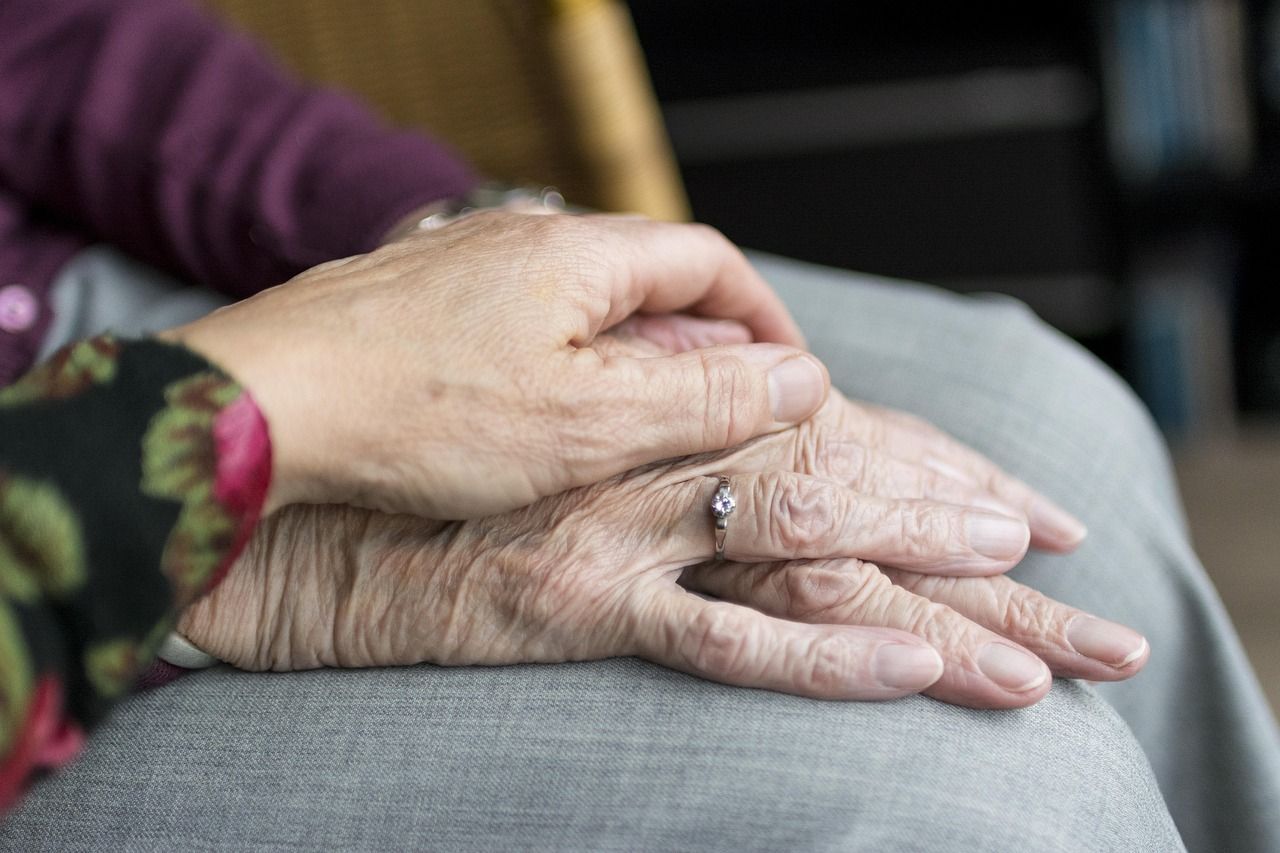What to Do Immediately After a Loved One Passes Away
After a loved one passes away, begin by notifying close family and friends. Contact the funeral home to discuss arrangements and costs. Arrange for the deceased's care with a reputable service. Gather important documents like wills and financial papers. Notify relevant institutions like banks and insurance companies. Taking these steps promptly is vital during this difficult time. Remember, seeking support networks and practicing self-care are important for healing. These initial actions will lead you through the immediate aftermath of your loss.
Key Takeaways
- Notify close family and friends promptly for support.
- Contact a funeral home for arrangements and services.
- Arrange for the deceased's care with professionalism.
- Gather important documents like wills and financial papers.
- Notify relevant institutions like Social Security and banks.
Notify Close Family and Friends
It's important to reach out and inform your close family and friends about the passing of your loved one as soon as possible. This step is vital in times of grief to make sure you have your support system around you. In moments like these, having your loved ones nearby can provide comfort and help you navigate through the emotional needs that arise.
Creating a communication plan can assist in notifying your inner circle effectively. Consider designating a few close individuals to help spread the news to extended family and friends, allowing you to focus on processing your emotions. Remember to set privacy boundaries based on your comfort level, deciding who you want to inform personally and who can help relay the message.
Your emotional needs are a priority during this time. Lean on your support system to share memories, seek solace, and find strength in each other. Taking these immediate steps of notifying your close family and friends can alleviate some of the burdens you may be feeling, knowing that you have the backing of those who care about you.
Contact the Funeral Home
When a loved one passes away, one of the immediate steps to take is to reach out to a funeral home for assistance with the necessary arrangements. This can be a challenging time, but funeral homes are there to help lead you through the process with compassion and professionalism.
Here's what you should consider when contacting a funeral home:
- Funeral Arrangements:
The funeral home can assist you in planning the details of the service, including the location, date, and any specific requests you may have.
- Funeral Services:
They can provide information on the different types of services available, helping you choose what best honors your loved one's memory.
- Funeral Director: A funeral director will be assigned to you to help coordinate all aspects of the funeral service and support you during this difficult time.
The funeral home can also discuss **burial options** with you, whether it be a traditional burial or cremation, and provide guidance on **funeral costs** to help you make informed decisions.
Arrange for the Deceased's Care
To guarantee your loved one receives proper care after passing away, promptly make arrangements with a reputable funeral home. This step is vital in ensuring that your loved one's final wishes are honored and that the necessary arrangements are handled with care and professionalism. Funeral arrangements include selecting a casket, arranging for cremation if preferred, deciding on the type of service, and choosing a burial plot if applicable.
Funeral Arrangements Care Options Support Services
|-----------------------------------------------|--------------------------------------------------------------|--------------------------------------------------------------------|
Choose casket or cremation Decide on funeral service preferences Seek grief counseling services
Select type of service Explore burial options Connect with community support groups
Arrange for burial plot Consider memorial services Use online resources for coping with loss
Moreover, during this challenging time, it is important to explore the care options available for your loved one. Understanding the support services offered by the funeral home, such as grief counseling or community support groups, can provide comfort and assistance during the grieving process. Additionally, exploring legal considerations and financial assistance options can help alleviate some of the burdens associated with end-of-life arrangements. By taking these steps, you can ensure that your loved one's care is handled with compassion and respect.
Gather Important Documents
Begin by collecting the necessary documents needed following the passing of your loved one. This step is important for handling legal matters, understanding financial implications, and managing estate planning effectively. Here are three key items to gather:
- Document Organization: Start by locating and organizing important documents such as the will, insurance policies, deeds, titles, and financial account information. Keeping these documents in one secure place will help streamline the process of settling your loved one's affairs.
- Legal Matters: Look for legal documents like the will, trust documents, and any prenuptial agreements. These papers are crucial for understanding your loved one's final wishes and ensuring that their estate is distributed according to their intentions.
- Financial Implications:
Gather documents related to your loved one's finances, including bank statements, investment portfolios, tax returns, and outstanding debts. Understanding the financial landscape left behind is important for managing assets and liabilities appropriately.
During this challenging time, remember to lean on your support networks for guidance and assistance. Reach out to family members, friends, or professionals who can help you navigate the complexities of handling important documents after a loss.
Notify Relevant Institutions and Authorities
Notify the necessary institutions and authorities promptly after the passing of your loved one to guarantee proper procedures are followed. It's important to understand your legal responsibilities during this time. Contact the relevant entities such as the Social Security Administration, banks, insurance companies, and the executor of the will if applicable. These initial steps are time-sensitive and can help secure a smoother progression during this difficult period.
The emotional impact of notifying institutions and authorities can be overwhelming. Lean on your support networks for assistance and guidance. Family members, friends, or a trusted advisor can help you navigate through this process with compassion and understanding.
Practical considerations also come into play when handling these notifications. Gather all necessary documents beforehand to streamline the process. Have important information readily available, including the deceased's social security number, account details, and any legal documents. This preparation can make the notification process more efficient and less stressful for you.
Begin Planning the Funeral or Memorial Service
Commence arranging the funeral or memorial service, a pivotal step in honoring your loved one's memory with grace and dignity. Planning this event requires attention to detail and a compassionate approach to creating a meaningful tribute.
Here are some crucial aspects to contemplate:
- Memorial arrangements:
Decide on the type of service you envision, whether it's a traditional funeral, a memorial gathering, or a celebration of life event. Reflect on your loved one's preferences or any pre-arranged plans they may have had.
- Funeral preparations:
Work with a funeral home or service provider to make necessary arrangements such as selecting a casket or urn, choosing a burial plot or cremation option, and coordinating transportation for the deceased.
- Ceremony details: Determine the order of events for the service, including any readings, musical selections, or eulogies. Personalize the ceremony to reflect your loved one's life and values.
As you navigate the service logistics and celebration planning, remember that this event is an opportunity to honor and remember your loved one in a way that feels authentic and meaningful to you and your family. Take your time with these decisions and lean on your support system for guidance and assistance.
Seek Emotional Support and Self-Care
To traverse this challenging time with care and compassion, prioritize seeking emotional support and practicing self-care. Coping strategies are vital in helping you manage the overwhelming emotions that come with loss.
Reach out to grief support groups or counselors who can provide a safe space for you to express your feelings and receive guidance on maneuvering through the grieving process. Engaging in self-care rituals, such as meditation, journaling, or spending time in nature, can aid in emotional healing by allowing you to focus on your well-being.
Remember that it's okay to seek help and lean on others for support during this difficult time. Community resources, such as local support groups or online forums, can connect you with individuals who understand what you're going through and offer additional coping strategies.
Taking care of yourself is vital in the healing process, so be gentle with yourself and prioritize activities that bring you comfort and peace.
Incorporating these coping strategies, grief support networks, self-care rituals, and community resources into your routine can provide a foundation for emotional healing and growth as you navigate the challenging experience of grieving the loss of your loved one.
Frequently Asked Questions
Can I Still Spend Time With My Loved One After They Pass Away?
You can spend time with your loved one after they pass away by cherishing memories, talking to them, or simply being present. This can aid in the grieving process, provide emotional closure, foster a spiritual connection, and support healing rituals and memorial services.
How Can I Handle the Deceased's Social Media Accounts?
Managing a digital legacy can feel overwhelming, but you got this! Start by updating privacy settings, creating online memorials, and sharing passwords with trusted loved ones. Remember, taking it step by step is crucial.
What Should I Do With Their Personal Belongings?
When deciding on your loved one's personal belongings, consider estate distribution, sentimental items, clothing donations, and storage options for important documents. Preserve memories with heirloom jewelry, opt for charity donations, and find homes for household items.
Are There Any Legal Matters I Need to Address Immediately?
When someone passes, you may need to address legal matters immediately. Estate planning, probate process, death certificate, notifying authorities, and making funeral arrangements are essential. Seek legal guidance to navigate these complexities during this difficult time.
How Can I Support Other Family Members During This Time?
Support your family during this challenging time by providing emotional comfort, encouraging open communication, sharing daily responsibilities, seeking professional advice for estate matters, and prioritizing self-care to navigate the grieving process together with unity and resilience.
To wrap up, keep in mind to take things one step at a time as you navigate this challenging path. It's okay to lean on others for support and to prioritize your own well-being during this time of loss.
Remember, Rome wasn't built in a day, and healing takes time. You aren't alone, and there are people here to help you through this difficult period.
Stay strong, and take care of yourself as you move forward.











